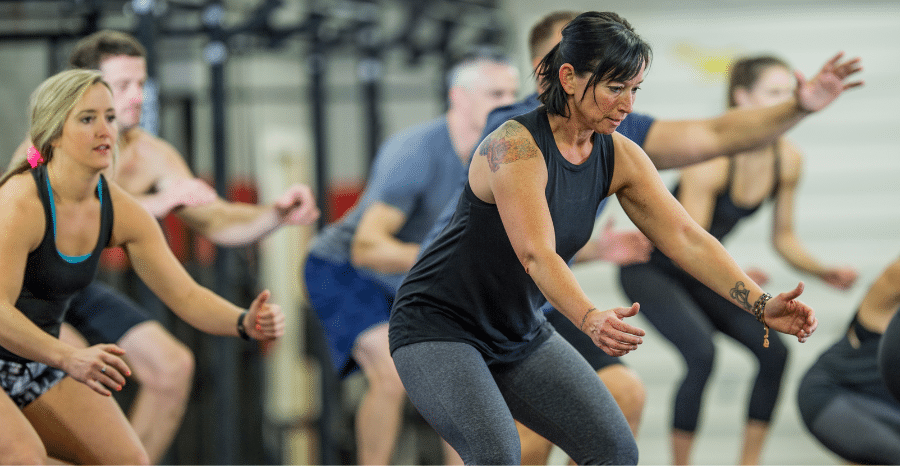What is High-Intensity Intermittent Exercise?
HIIT workouts are performed in intervals of short, high-speed bursts followed by slower recovery sessions—switching between short sprints and light jogging, for instance.
Some other examples of HIIT workouts include:
- Lunges.
- Burpees.
- Pushups.
- Squat jumps.
- Speed walking.
Most intermittent exercises only require your body weight, although some can be done with small equipment like medicine balls and light weights. In conclusion, HIIT exercises are much shorter than most workouts so they are perfect for busy moms, working individuals, or anyone on the go.
High-Intensity Workouts Burn More Fat
An average person burns 298-355 calories during a moderate 30-minute jog. Intermittent exercises, however, can burn the same, if not more, calories in less time.
HIIT uses up most of your glucose and oxygen stores as energy. As your muscles refuel, they use stored glucose and fat from other parts of the body as energy.
Less demanding workouts only need minimal glucose, and typically your body uses stored carbohydrates as energy instead of fat. Studies suggest that intermittent exercise alters the sequence of metabolic function, shifting the focus from carbs to fat for energy. Lastly, another study discovered that people who performed HIIT workouts lost 28.5 percent more weight than people who performed continuous exercises.
HIIT Continues Burning Fat After Exercise
Intermittent exercises burn fat hours after your workout ends. Since your body burns through all of its energy reserves during the workout, it continues burning fat to refuel the muscles. The demand for energy speeds up your metabolism, which results in more calories burned.
HIIT also accelerates the production of various hormones, like testosterone and human growth hormones (HGH). With an increase in HGH and testosterone, your body can improve muscle mass, repair muscle tissue, and tone your muscles at a faster rate.
HIIT Improves Aerobic Capacity
Intense activity rapidly raises your heart rate, which increases oxygen intake, improves blood circulation and impacts your athletic performance.
As your muscles learn to better utilize oxygen, they won’t tire out as quickly during exercise. You’ll notice an increase in aerobic capacity and endurance, allowing you to work out longer and at higher speeds.
Is HIIT Right for You?
A HIIT workout routine isn’t for everyone. Before starting any HIIT plans, consult your doctor to make sure it’s right for you. Subsequently, the drastic change of pace can result in injury if you’re not conditioned for it. In addition, it’s also equally important to warm up before intermittent exercise and stretch afterward to prevent injuries such as muscle strains.
Furthermore, If you’re new to HIIT, it’s best to start slow and work your way up. For example, experts recommend a 10-12-week conditioning plan of moderate-to-low intensity workouts to improve strength, flexibility, and endurance. High-Intensity Intermittent Exercise is demanding, so it shouldn’t be done regularly.
Want More Information?
Ask the experts at IBI Healthcare Institute; Co-founded by general surgeon Dr. Christopher Ibikunle and cosmetic surgeon Dr. Angelina Postoev, our experienced team specializes in weight loss and surgical procedures. Common questions patients have for example, how does HIIT fit into your fitness routine, or Is a HIIT routine right for you? Call us or schedule a teleconsultation to get answers from our medical team. Also, check out our blog post on tummy fast removal tips and recipes.










